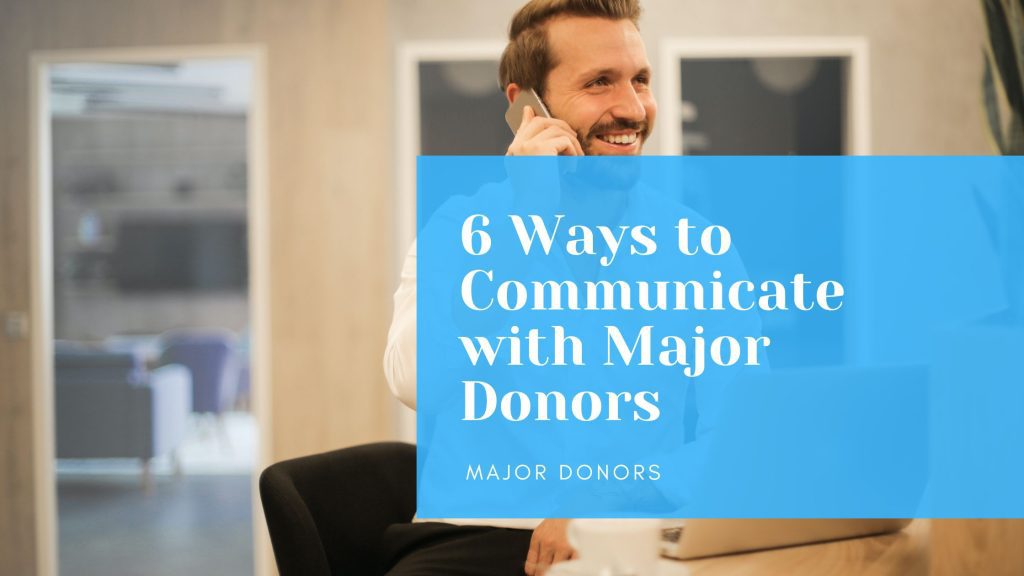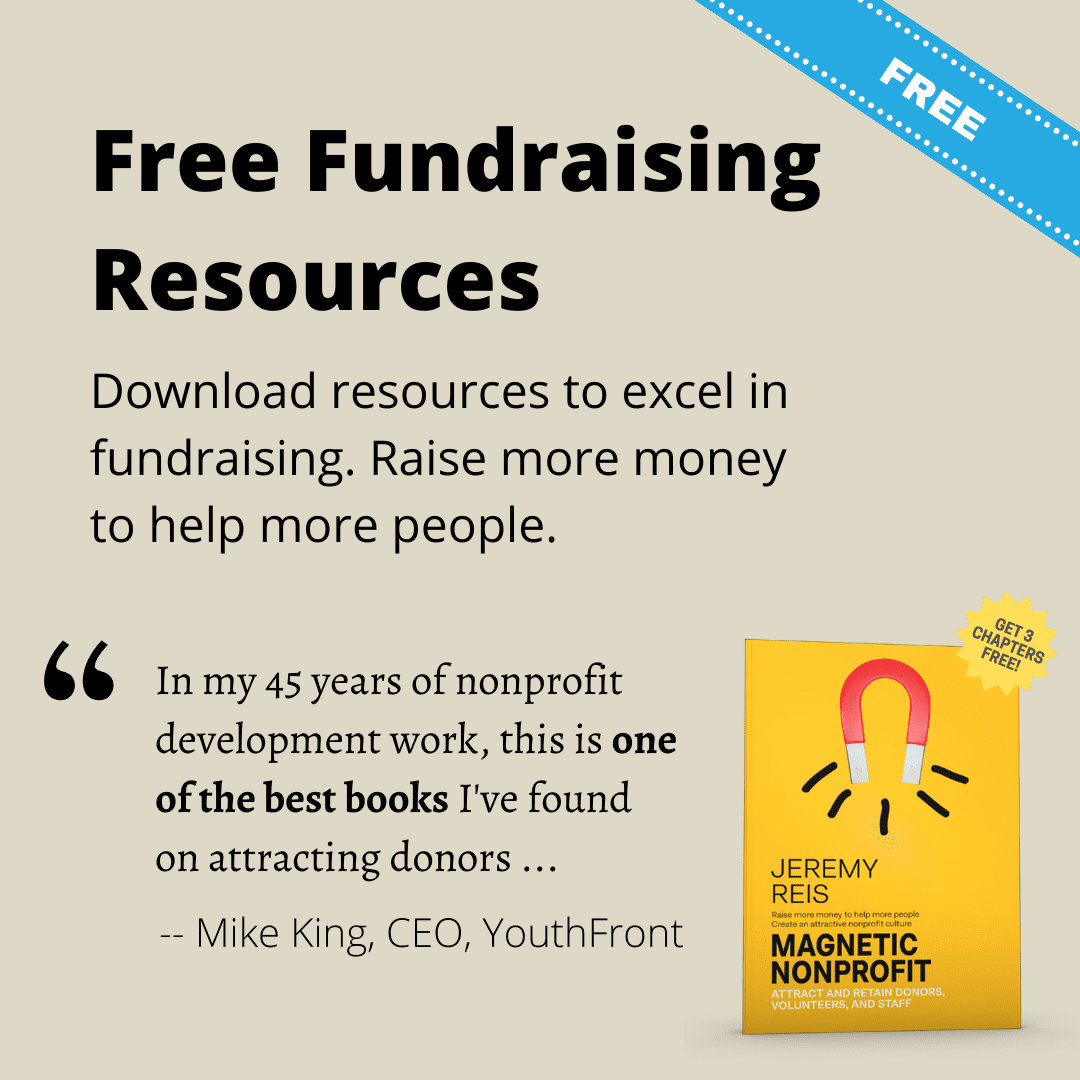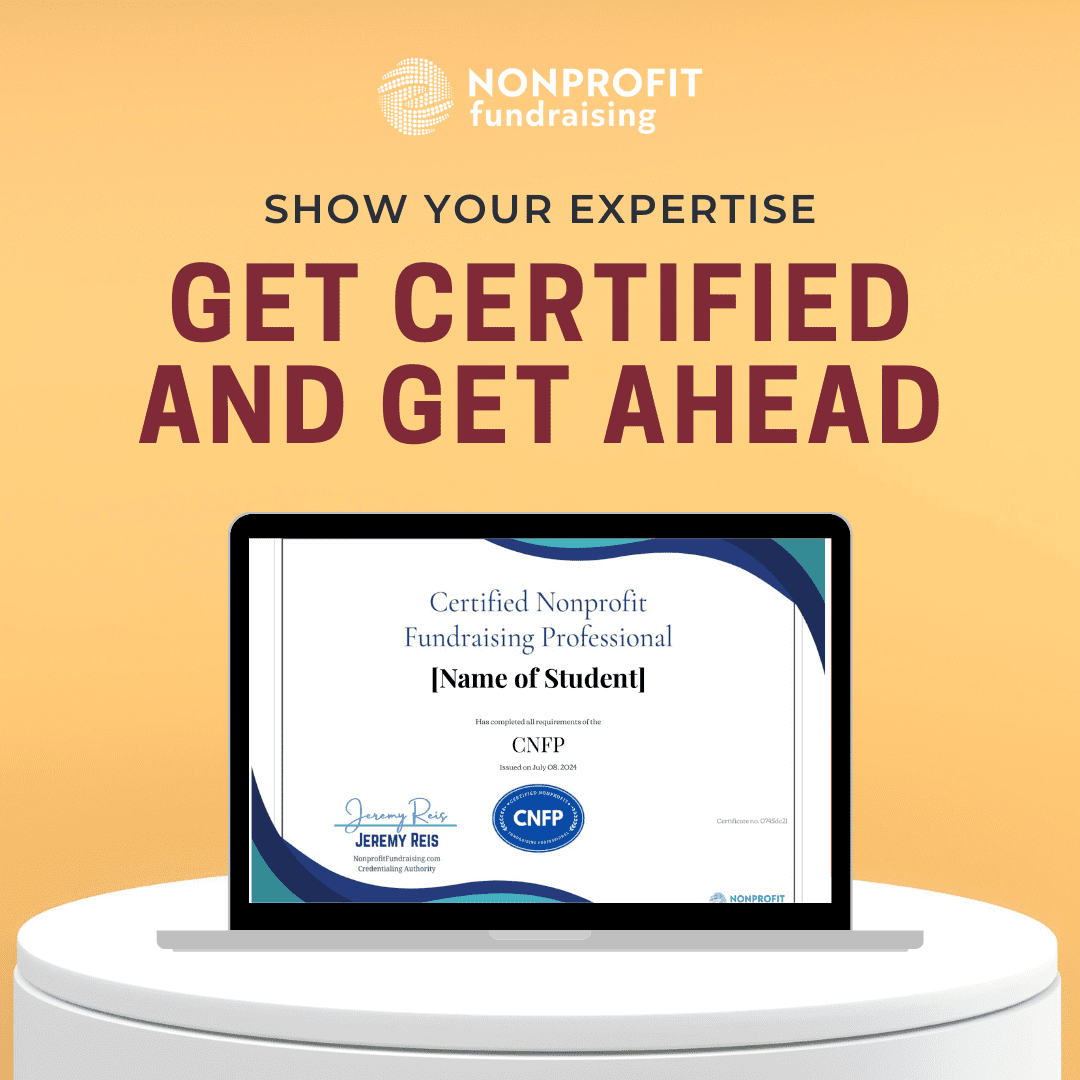Building relationships with your major donors is crucial to the success of your fundraising efforts. Using multiple channels to communicate with major donors should be a key part of your major donor fundraising strategy. But what’s the best way to communicate with these important constituents?
Here are six channels you can use to communicate with with major donors:
1. Phone Call
The telephone can be an incredibly powerful tool for fundraisers trying to communicate with major donors. When used correctly, the telephone can help forge personal relationships, build trust, and make ask for donations. Here are four ways to use the telephone to communicate with major donors.
Make Personalized Calls
Personalized calls are one of the most effective ways to use the telephone to communicate with major donors. When you call a donor and address them by name, thank them for their previous donations, and update them on how their money is being used, they feel valued and appreciated. This helps foster a personal relationship between the fundraiser and the donor which can lead to repeat donations down the road.
Build Trust
Another way to use the telephone to communicate with major donors is by building trust. When you call a potential donor and spend time getting to know them and their interests, you are building trust. This trust is important because it will eventually lead to the donor feeling comfortable enough to make a donation.
Ask for Donations
Of course, one of the main purposes of using the telephone to communicate with major donors is to eventually ask for a donation. Asking for donations can be tricky, but if you have built up trust and rapport with the donor beforehand, then asking for a donation should be much easier. Just be sure to be polite, respectful, and direct when asking for a donation.
Keep in Touch
 Finally, another way to use the telephone to communicate with major donors is by keeping in touch even after they have made a donation. Whether you call them periodically to update them on how their money is being used or simply call them on holidays and special occasions, staying in touch shows that you appreciate their support and want to keep them updated on your work. This will help solidify their relationship with your organization and may even lead to additional donations down the road.
Finally, another way to use the telephone to communicate with major donors is by keeping in touch even after they have made a donation. Whether you call them periodically to update them on how their money is being used or simply call them on holidays and special occasions, staying in touch shows that you appreciate their support and want to keep them updated on your work. This will help solidify their relationship with your organization and may even lead to additional donations down the road.
2. Handwritten Card
One way to cultivate major donors is to send hand-written cards on a regular basis. This personal touch helps build relationships with potential donors and shows them that they are valued members of the organization’s community. When writing cards to major donors, be sure to focus on the impact their contributions have made. Thank them for their support and let them know how their donations have helped the organization achieve its goals. By taking the time to cultivate relationships with major donors, nonprofit organizations can ensure that they will continue to receive the financial support they need to thrive.
3. Text Message
For nonprofit organizations, cultivating relationships with major donors is essential to a successful fundraising strategy. However, keeping these donors engaged can be a challenge. One way to stay connected is to use text messages. By sending timely updates and personal messages, you can show your donors that they are valued members of your community. Here are a few tips for using text messages to cultivate major donors:
– Keep it personal. When sending a text message to a donor, always include their name. This helps to create a sense of connection and shows that you are thinking of them as an individual, not just as a source of funding.
– Be timely. Donors appreciate being kept up-to-date on the latest news from your nonprofit. Use text messages to share updates on your work, and be sure to include information on how their donations are making a difference.
– Make it interactive. Text messages provide an opportunity to have a two-way conversation with your donors. Ask them for their input on your work, and let them know that their opinions matter to you.
By following these tips, you can use text messages to cultivate strong relationships with your major donors.
4. Digital Video
With personalized videos, you can address each donor by name and thank them for their generous contribution. You can also update them on how their donation is being used and what impact it is having. This helps to build a strong relationship with your donors and shows them that you are committed to transparency and accountability.
Personalized videos are also a great way to share your nonprofit’s story and mission. This can help to inspire potential donors and convince them to support your cause. And because they are so personal, these videos can be very powerful and effective.
If you’re looking for a way to cultivate major donors and raise more money for your nonprofit, consider using a personalized video platform. These platforms help automate the recording and delivery of personalized videos. They integrate with most donor CRMs to automate the entire process. They are an excellent way to build relationships, share your story, and inspire people to support your cause.
5. Email
First, make sure your emails are personal and relevant. Don’t send generic messages – take the time to tailor your emails to each donor. Second, keep your emails short and to the point. No one wants to read a long, rambling message from a nonprofit. And lastly, don’t be afraid to ask for donations in your emails. Major donors are accustomed to being asked for money, and they expect nonprofit organizations to solicit their support. By following these tips, you can use email to cultivate relationships with major donors and ultimately secure the financial support your nonprofit needs to thrive.
6. In-Person
For many nonprofit organizations, cultivating major donors is an essential part of their fundraising efforts. And while there are a number of ways to cultivate these relationships, one of the most effective is through in-person visits. During these visits, nonprofit representatives can get to know their donors on a personal level, learn about their interests and philanthropic goals, and deepen the relationship between the two parties. In-person visits also provide an opportunity for nonprofit staff to share information about their organization’s work and impact, as well as its future plans. By taking the time to cultivate these relationships through in-person visits, nonprofit organizations can build the strong foundations needed to secure major gifts from their donors.
Building trusting relationships with major donors is essential to your success as a fundraiser. By following these tips, you can effectively communicate with your donors and ensure that they continue supporting your cause for years to come!
Tips for More Effective Communication
Here are six tips for effective communication with major donors:
1. Keep them up-to-date on your organization’s progress and impact.
Your major donors want to know how their investment is paying off, so make sure you keep them in the loop on your organization’s progress. Send them a quarterly update that includes key metrics, highlights from the past year, and plans for the future. You can also invite them to attend special events or webinars where they can learn more about your work firsthand.
2. Show them how their gift is being used.
Your major donors want to know that their money is being put to good use, so show them! Share stories and photos of how their gift is making a difference in the lives of those you serve. Or give them a tour of your facilities so they can see firsthand how their support is helping your organization grow and thrive.
3. Thank them regularly (and sincerely!).
Your major donors should feel appreciated, so be sure to thank them frequently – not just when they make a gift, but also on anniversaries, holidays, and other special occasions. And don’t forget to include a personal note letting them know how much you appreciate their continued support!
4. Keep in touch even when you’re not asking for money.
Your relationship with your major donors should go beyond simply asking for money. Make an effort to keep in touch even when you’re not working on a new fundraising campaign. Drop them a line just to catch up or invite them to lunch next time you’re in town. These small gestures will go a long way in building strong relationships with your major donors.
5. Get feedback from them on your fundraising efforts.
Your major donors are an invaluable source of feedback on your fundraising efforts – from campaigns to specific tactics and strategies. Ask them for their thoughts and suggestions, and be sure to listen carefully to what they have to say! They may have some great ideas that you can use to improve your fundraising skills and strategies.
6. Involve them in decision-making processes whenever possible.
“Major donor” doesn’t just refer to someone’s financial contribution – it also refers to their importance as advisors and sounding boards for your organization’s decision-making processes. Whenever possible, involve your major donors by asking for their opinions affecting your major donor program’s future direction – they’ll appreciate the opportunity to have a say in how their support is used, and you’ll benefit from their valuable insights!

